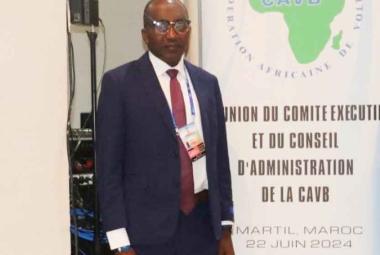By Kumba Leigh
The Food and Agriculture Organisation (FAO) of the United Nations has commenced a 29-day training of fisheries and agriculture extension staff on aquaculture principles and management.
The training, organised under the Green Climate Fund Climate Resilient Fishery Initiative for livelihood improvement project (PROREFISH Gambia) aims to build the capacities of fisheries and agriculture extension staff on aquaculture principles and management, address food security challenges, and enhance resilience of fishers, processors, and traders by controlling natural processes; such as spawning and survival through aquaculture to mitigate the adverse impacts on fish stocks and ecosystems.
Speaking at the opening of the training at NaNA, Moshibudi Rampedi, FAO Representative in The Gambia, said with the world’s capture fisheries in decline due to climate change, overfishing, and illegal fishing, promoting aquaculture has become critical.
She outlined that the adaptation measures as including climate-resilient aquaculture, restoring fisheries habitats through mangrove restoration and oyster cultivation, as well as climate-proof small-scale fishing infrastructure.
She reaffirmed that aquaculture is the fastest growing food-producing sector, accounting for nearly 50 percent of the world’s food fish. She explained that the overall growth in aquaculture production remains relatively strong owing to the increasing demand for food fish among most producing countries.
On the challenges, FAO Rep mentioned overfishing, illegal, unregulated and unreported fishing and high sensitivity to the effects of climate change.
“In response to the challenges faced, the Government of The Gambia has set aquaculture as one of the priority intervention sectors for decent job creation especially for youth and women, reducing poverty, improving productivity, and boosting economic growth,” she affirmed.
While acknowledging that The Gambia’s aquaculture is underdeveloped, Madam Moshibudi Rampedi observed that there are opportunities for accelerated and sustained growth through the availability and level of technology, availability of production inputs, support facilities and services amongst others.
She assured that PROREFISH project will establish a solid and functioning foundation for sustainable provision of and access to good quality seed fingerlings and feed, transfer of technical and technological expertise, as well as managerial and other skills for better production, mitigate national acute skills shortage of field, level aquaculture cadre.
Principal Fisheries officer, Fisheries Department, Saloum Jatta, explained that the project has three inter-linked components, which are: strengthening restoration capacity and community management of artisanal fisheries habitats; enhancing climate resilient fisheries infrastructure and aquaculture development to ensure increase the overall fish availability and enhance the incomes of poor fisher-folk and farmers. The final component being counterpart funding in which the Ministry of Fisheries, Water Resources and National Assembly Matters has committed itself of conducting capacity building for civil servants, fish farmers and feed mill operators.
PROREFISH project aims to support vulnerable fishing communities in building resilience to climate change and in diversifying livelihoods through technology improvements, processing techniques, climate-proofing of the local fishery infrastructure, and diversification of local food systems.



